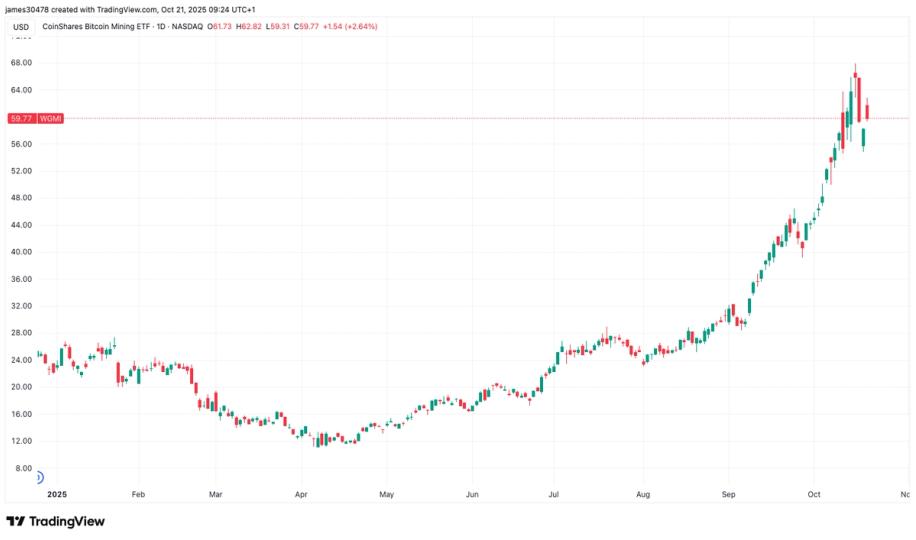The boom in stock prices of artificial intelligence (AI) and high-performance computing (HPC) companies since September has generated extraordinary returns for Bitcoin miners expanding in these sectors, but this growth comes at a cost.
Bitcoin has grown just 10% this year, and with the bubble in corporate Bitcoin treasuries bursting in recent months, the conversation has shifted to miners transforming their business models. Mining companies are increasingly active in debt markets as they seek to finance ambitious expansion of their AI and HPC businesses.
According to The MinerMag, their combined offerings of debt and convertible notes reached record levels in the third quarter, with estimates reaching as high as $6 billion. This increases the risk of default, and investors will now focus on generating significant income through the pivot.
TerraWulf (WULF), MARA Holdings (MARA) and Cipher (CIFR) together raised billions via convertible bonds during the quarter, while CleanSpark (CLSK) tapped credit lines to strengthen their balance sheets.
The momentum continued into the fourth quarter. TerraWulf has launched a $3.2 billion private placement of senior secured notes, which would be the largest offering ever by a public miner, according to The MinerMag. Shortly after, IREN (IREN) issued a $1 billion convertible bond and Bitfarms (BITF) announced a $300 million convertible bond.
Some of these instruments, like that of IREN, have a zero coupon structure. Others, like TerraWulf’s latest issue, have higher costs, with a 7.75% coupon translating into annual interest costs of around $250 million. This far exceeds the company’s 2024 revenue of just $140 million, according to The Miner Mag.
Is this time different?
During the 2022 bear market, when the hash price collapsed while bitcoin fell 70%, lenders seized machines that had been used as loan collateral, a technique used when Core Scientific (CORZ) filed for bankruptcy (Chapter 11).
MinerMag suggests that the focus on AI-HPC uniquely differentiates the current debt-fueled fundraising cycle. By seeking diversified income, the miner may be able to reduce risk.
The market rewards higher valuations for miners moving from pure Bitcoin operations to AI/HPC activities. While convertible bonds still result in dilution for shareholders, the pivot also attracts a new investor base.
The CoinShares Bitcoin Mining ETF (WGMI), often seen as a proxy for the broader Bitcoin mining sector, is up 160% year to date.




